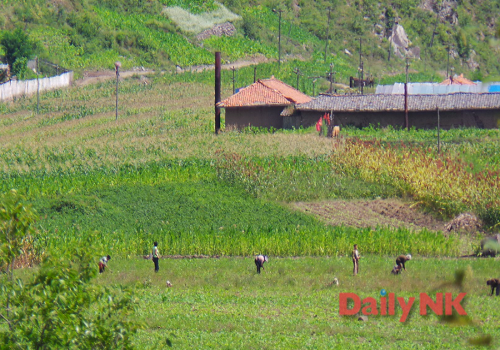Some of North Korea’s farmers are reportedly stating their intention to refuse assistance in anticipation of future mobilization of citizens by the government. Although the authorities have yet to hand down any mobilization directives this year, many rural villagers believe they cannot accommodate the needs of the additional workers.
A source in Ryanggang Province informed Daily NK on October 18 that “in a good harvest year, now would be the height of mobilization, but this year farmers are refusing to accept such help. They are afraid that there’s not enough food for all of the mobilized workers, especially considering the poor harvest.”
Another source in Jagang Province confirmed this trend, stating, “Farmers are not as busy now compared to previous years, so the circumstances do not merit a need for more assistance.”
“Many are relieved that they will not have to receive mobilized workers this year, but they are not openly saying this. They are all busy dealing with how to secure enough food for the coming year. Last year you could even see fallen stalks of rice discarded on the roadside or people picking over the fields following the harvest for remnants, but this year people are being much more careful with their inventory,” the Jangang-based source explained.
Knock-on effects of international sanctions are reportedly taking their toll as well. The source stated that people in both the cities and the countryside are experiencing instability in market prices as a result, forcing some merchants to leave the cities in search of better opportunities.
“These days we are seeing a large number of city-based merchants setting up shop in the countryside. It used to be that the rural villages were quite hospitable, but current conditions dictate a more cautious reception this year,” the Ryanggang source said.
She explained that limited yields also mean that people must forego special seasonal dishes, instead saving every last grain of rice just to survive. “People are accustomed to eating traditional dishes in the fall like tteok (rice cakes), bread, and potato noodle soup. But people will be much more frugal this year, preparing only the bare minimum, even on special occasions,” she said.
“Focusing purely on calories, people are opting for simpler and cheaper foods. They are slaughtering their livestock in order to sell the meat and use the profits to purchase greater amounts of rice, corn, and other grains to store for the coming season.”



















